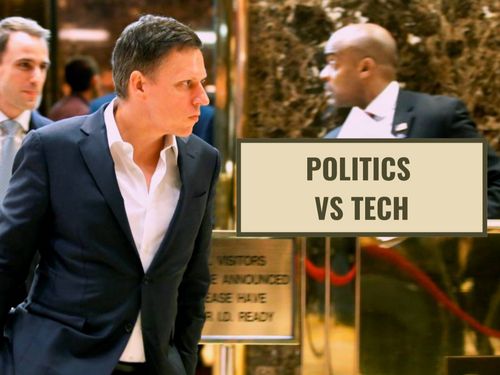Why Peter Thiel doesn't like politics
Oct 09, 2021 · 2 mins read
0
Share

Who's the world's most intriguing billionaire? My answer: Peter Thiel. In a 2009 essay The Education Of A Libertarian, Thiel wrote about politics, technology, and the clash between them. Key insights👇👇👇
Save
Share
In university, Thiel started a dissident newspaper to pushback against political orthodoxies. Despite some victories, "it felt like trench warfare on the Western Front in World War I." There was a lot of carnage and very little movement forward.
Save
Share
Thiel doesn't like the effort to reward ratio of politics. A lot of politics feels circular and polarizing to him: "the world is us versus them; good people versus the other." He writes: "the great task for libertarians is to find an escape from politics in all its forms."
Save
Share
The "unthinking demos" hijacks free nations. "Capitalist democracy" is an oxymoron. The number of "welfare beneficiaries" keep growing - they have a vested interest in anti-libertarian policies such as low taxes. Peter Thiel has "little hope that voting" will improve things.
Save
Share
Politics is anti-libertarian as it is "about interfering with other people’s lives without their consent." Technology, however, can be pro-libertarian. Technology can open up new spaces - Thiel gives 3 examples - that can become playgrounds for libertarian experiments👇👇👇
Save
Share
The Internet. The internet has given people alternative spaces where they can talk, learn, earn, and more. But the core problem with cyberspace is "these new worlds are virtual and that any escape may be more imaginary than real."
Save
Share
Outer space. What better place than space for genuine wild west experiments? Away from the tyrants, bureaucracies, and political regimes of Earth - but we must be "realistic about the time horizons." Space remains distant, expensive, and deadly.
Save
Share
Seasteading. Thiel writes, "Between cyberspace and outer space lies the possibility of settling the oceans." Creating a human colony on an ocean is harder than creating an app but "much more realistic than space travel." The oceans may provide the escape libertarians seek.
Save
Share
Thiel writes we should "resist the temptation of technological utopianism." There's no guarantee the world will keep improving. It might regress - ours is a complex civilization, and many such civilizations have collapsed in history.
Save
Share
Bottom line. Thiel believes genuine human freedom is a "precondition for the highest good." Politics systematically corrodes freedom, but technology might provide an escape. There is nothing fated about the future - individual decisions will determine which way the coin falls.
Save
Share
0